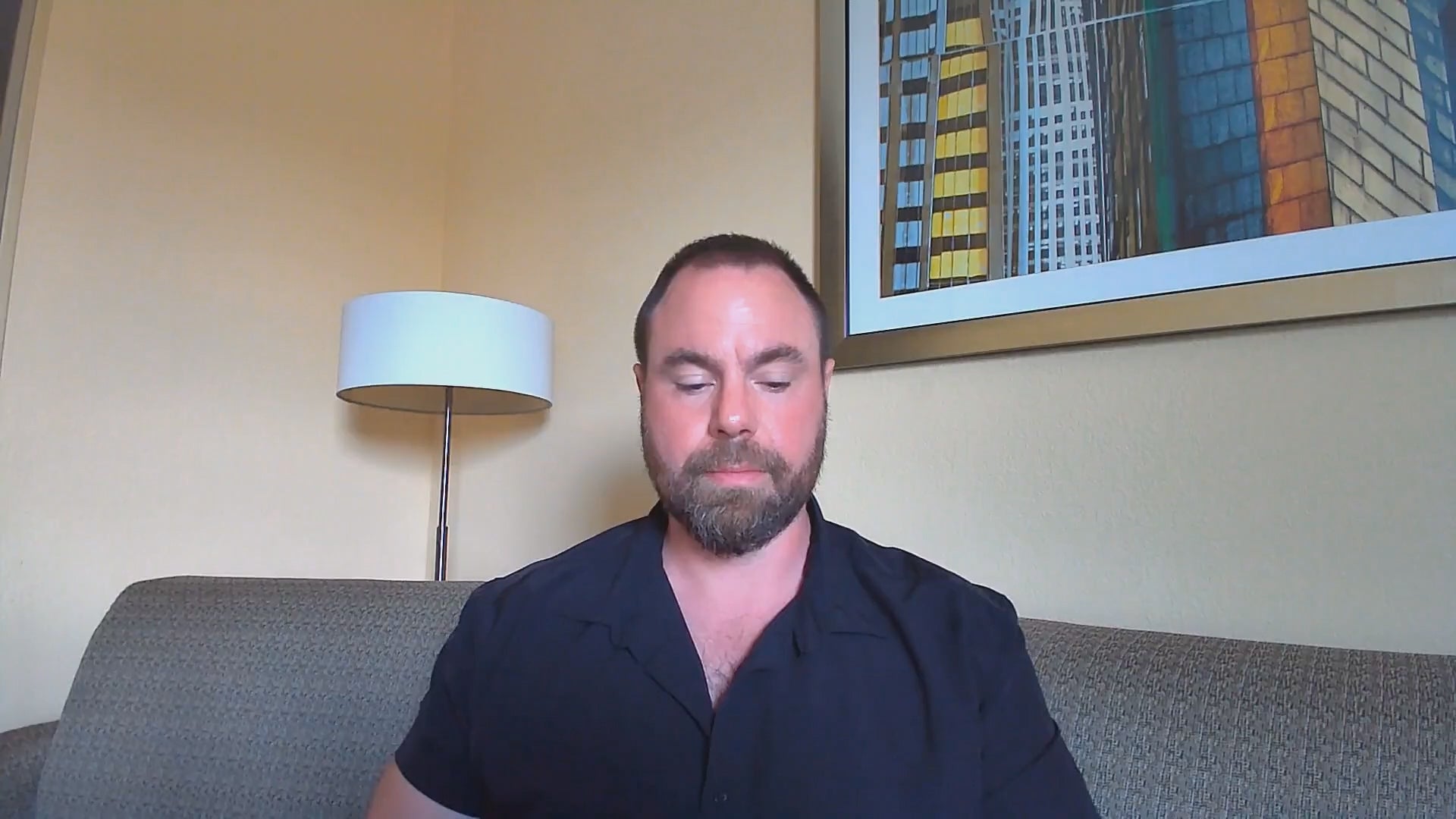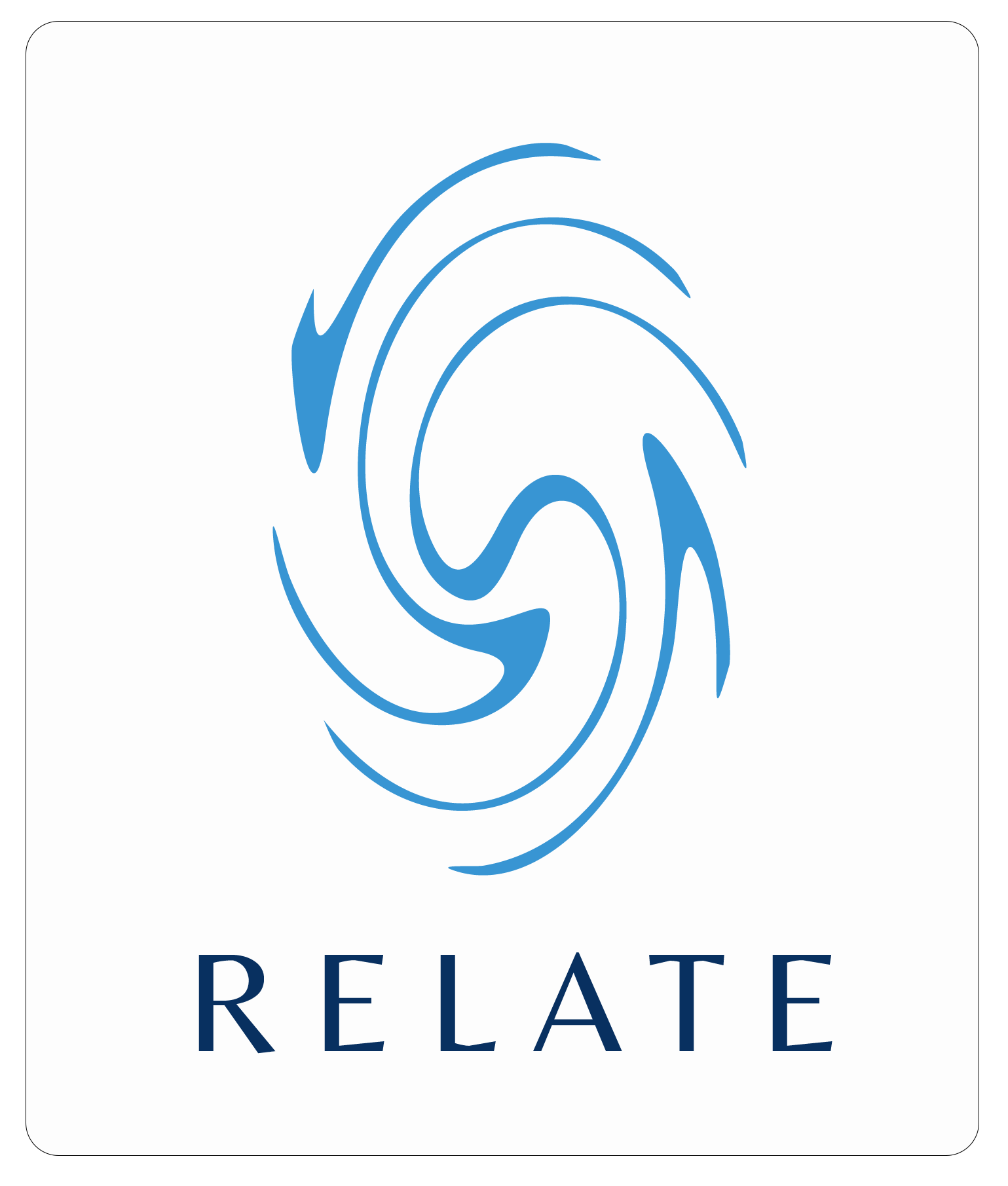PORT an Integrated, Evidence-Based Approach to Couples Therapy
Presence-Oriented Relationship Therapy (PORT) is designed for both new therapists beginning couples work and experienced clinicians integrating advanced models.
Developed over 8 years by the Relate NZ team, PORT blends neuroscience, attachment theory, mindfulness, and relational practice into a unified framework for effective, compassionate couples counseling.

Integrated Couples Therapy: Presence Oriented Relationship Therapy (PORT) Level 1 and 2
Description
PORT Level 1 & 2 – Integrated Couples Therapy Certification
Develop a unified, presence-based approach that integrates the best of Gottman, EFT, Imago, PACT, and the Developmental Model. Learning and practicing Presence Oriented Relationship Therapy (PORT) gives you the structure and confidence to bring the leading couples therapy models together in one practical, embodied framework.
Program Schedule
Level 1 – Foundations (Integrated with Level 2)
Learners begin with the Introductory Chapter, completed before the first live session. Each week that follows, a new Level 1 module aligns directly with the week’s Level 2 topic. Every module includes concise video lessons, guided exercises, and practice activities designed to prepare you for live sessions and deepen your understanding afterward. Expect around two and a half hours per week of Level 1 learning.
Level 2 – Live Cohort (Applied Practice)
The live component runs for eight weeks of small-group training and supervision. Each week includes a two-and-a-half-hour interactive session focused on applied practice and integration, combined with about two and a half hours of self-paced study from Level 1—making a total weekly immersion of around five hours. The next cohort runs from March 10 to April 28, 2026. Live sessions are held Tuesdays at 11:00 a.m. NZDT / 9:00 a.m. AEDT / Mondays at 6:00 p.m. ET. All sessions are recorded and available for review.
Continuing Education and Certification
The full program provides 40 total training hours—20 integrated self-paced and 20 live. Approval is pending for 20 CE hours and 10 CPD points with NASW, NBCC, APA, and the Australian Counselling Association OPD framework. Certificates of completion are issued for both Level 1 and Level 2. Graduates are eligible to continue toward the PORT Level 3 Advanced Certification Pathway. Once approvals are finalized, CE certificates will be issued automatically.
Curriculum Overview
Level 1 – Integrated Foundations
Level 1 introduces the PORT Framework—Presence, Orientation, Regulation, and Tracking—and shows how the five major models can be mapped into one coherent system. Learners explore the Relational Brain Model and progress through increasing levels of couples attunement. Weekly practice assignments and reflections connect directly to each live training theme, helping integrate the material into embodied clinical practice.
Level 2 – Applied Practice Lab
Level 2 focuses on integration in real time. Participants learn to use the PORT Process Map to structure and flow through a session while maintaining presence and flexibility. Training includes supervised live practice, case consultation, and collaborative reflection groups. The program concludes with a final integration assessment and the Level 2 certification.
What You Receive
Enrollment includes lifetime access to all Level 1 materials and recordings, eight weeks of live Level 2 training, a structured weekly learning plan combining theory and practice, downloadable worksheets and process maps, and access to an ongoing community of graduates for peer consultation. Completion also provides eligibility for advanced PORT certification.
Enrollment and Pricing
The full program for PORT Levels 1 and 2 is $995 for early registration (Ends January 15) or $1,295 full registration. The next live cohort begins March 10, 2026,
Become a Certified PORT Couples Therapist
Three levels of professional development — from theory, to mastery, to case expertise.
The PORT Certification Pathway offers a complete training sequence for relationship professionals:
Level 1 – Foundations Theory, models, and conceptual mastery Self-paced online course
Level 2 – Practice & IntegrationLive small-group training with supervision4 interactive sessions
Level 3 – Targeted Case Consultation Advanced clinical mentoring and case refinement Ongoing online supervision
Graduates of Levels 1 & 2 can apply for PORT Certification, demonstrating clinical competence in relational assessment, intervention, and repair.
Designed for licensed clinicians seeking professional advancement, continuing education credits, and certification recognition.
Download PORT Certification Pathway


PORT Level 3: Targeted Case Consultation
Description
Advanced training for couples therapists
Couples therapists who have completed PORT Level's 1 & 2 will integrate PORT's 3 core models: Relational Brain Model, 5 Step Therapy Progress Model and The Presence Bridge Model into their practice. Participants will develop skills to improve the couple's connection through the use of videos and facilitator feedback.
Details:
The cost for the Targeted Case Consultation is $350 per participant. The consultation group will meet for 1 hour every 4 weeks. The total number of consultations will be same number as the number of participants. This will ensure that each member will have the opportunity to present.
Expanding the PORT Framework: Healing Betrayal and Restoring Trust
When connection is broken, understanding betrayal becomes essential to deep relational work.
After completing the PORT Core Training and engaging in targeted consultations, many therapists feel called to go deeper into the complex territory of betrayal, infidelity, and relational trauma.
This is where the Better After Betrayal programs begin.
Grounded in the same neuroscience and relational principles as PORT, these courses translate the Presence-Oriented approach into specialized methods for working with attachment rupture, emotional injury, and the rebuilding of relational safety.
You’ll learn how to:
Support both partners through the crisis and aftermath of betrayal
Rebuild safety, identity, and trust using presence and paced transparency
Recognize the neurobiological and emotional sequences of betrayal trauma
Guide couples through the structured phases of recovery
The Better After Betrayal offerings are designed for: Therapists seeking advanced competence in betrayal and trust repair and PORT-trained clinicians continuing their professional development journey
Begin with the Short Course: Better After Betrayal for a focused overview, or continue to the Betrayal Series for a full deep-dive into relational trauma and healing.


Better After Betrayal: Hope & Trust for Therapists
Description
Better After Betrayal: Hope & Trust for Therapists
United States and Canada: For US approved Continuing Education - Register through our US Based CE Partner Engagedmindsce.com
Earn 2 CE (U.S.) Approve through NASW, ACA and NY Board of Psychology - Full Details
1 OPD (Australia) · Approval pending Register on this Page
Self-paced • Mobile-friendly • Lifetime access • Free course
Therapists rebuild trust. Trust rebuilds relationships. In under two hours, learn practical, brain-based tools to help clients—and quietly strengthen the relationships that matter most in your own life.
The first two lessons are the videos to the left.
What you’ll be able to do
- Describe how intimate partner betrayal affects the brain, relationships, trust, and attachment.
- Identify at least three common therapist errors that can unintentionally reinforce mistrust after an affair.
- Explain how brief emotional “repair” moments work as micro-interventions in betrayal recovery, using client-centered examples.
- Recognize the value of a structured betrayal-recovery model and what it means for long-term relationship repair.
Who is Better After Betrayal for?
Counselors, social workers, psychologists, pastoral counselors, and both couples and individual therapists (new grads and seasoned clinicians alike).
Quick facts (CE & logistics)
- Credits: 2 CE (U.S.); 1 OPD (Australia). Approvals pending.
- Certificate: Print instantly at completion.
- Assessment: 20-question quiz, 80% to pass. Retakes allowed.
- Format: 100% self-paced video + 4 printable PDFs.
- Access: Lifetime; watch anywhere—quizzes work on your phone.
- Support: Email us; typical reply 1–2 business days.
- Price: Free. No catch—built to give hope, clarity, and momentum.
Curriculum at a glance
1) Why Trust Is the Real Therapy Goal (Not Just Symptom Relief)
• Why healing after betrayal is possible • Self-survey on how trust shows up in your work • From insight to intervention
2) How Mistrust Shows Up—and How to Spot It Early
• Why trust is hard today • The relational brain, practically • Choice in rebuilding love • How betrayal shatters trust • The betrayal cascade • Your map forward
3) Four Micro-Interventions to Begin Rebuilding Trust Today
• Borrowed trust • Trust-focused disclosure • Sexual & developmental blueprint • From assumptions to agreements • What therapists are saying
4) When Emotions Are High and Trust Is Low—You Still Have a Path Forward
• Live demonstration • Big “B,” little “b” betrayals • Rebuilding safety, identity, reality • Ethics of voice & presence (text) • Skills for angry, hurt clients • When not to begin work (text) • Critical moments
5) What It Looks Like When Repair Begins
• Taming criticism/defensiveness • Presence & authenticity • Navigating anger • Working with shame • If you’re the kind of therapist who…
6) From Shut Down to Seen: How the PORT Model Sparks Emotional Safety
• Helping avoidant partners open up • Present-moment needs • Turning betrayal into connection • A new way to see trust
7) Can Love Return After Betrayal? What’s Possible
• Trust with the relational brain in mind • Emotional safety first • Enjoying therapy again • Why betrayal is often the core issue
8) Your Next Step: Go Beyond Insight and Into Action
• A participant’s perspective • How trust issues drive anxiety, depression, trauma • Resources for continued growth
Instructor: Steven Dromgool
Steven brings warmth, humor, and deep clinical structure to one of the most emotionally difficult forms of couples therapy. He developed the PORT method to help therapists stop “winging it” and start transforming stuck betrayal dynamics into structured healing.
CE details & compliance
- Approvals: U.S. CE (2 hours) and Australian OPD (1 unit) approval pending—most state renewals are satisfied, but please confirm via our partner’s website, EngagedMinds.
- Completion: Pass the 20-question assessment at 80%, complete the course evaluation, and print your certificate immediately.
- Recordkeeping: Retain your certificate for your records per your board’s guidance.
- Scope & ethics: Educational content only; not a therapeutic relationship. Accessibility includes captions and transcripts.
What you get (free)
- Short, tightly produced lessons you can apply tomorrow.
- 4 printable PDFs (checklists & mini-tools) for session use.
- A hopeful, trust-first lens that calms chaos and builds momentum.
- A clear next step into the 20-hour Therapist Edition if you want mastery.
FAQ
Will this satisfy my state renewal?
For most licenses, yes—but always verify on EngagedMinds (our approval partner).
How/when do I get my certificate?
At completion. You can print it instantly.
What’s the pass score? Can I retake the quiz?
80% on a 20-question assessment; retakes allowed.
Is this appropriate for new grads?
Absolutely. It contains new information on the neurobiology of trust and is equally useful for experienced clinicians.
How much does it cost?
It’s free.
What’s the format and access?
Self-paced video + PDFs, lifetime access, mobile-friendly, and quizzes run on your device.
How fast is support?
Email us; we respond within 1–2 business days.
I'm having trouble accessing the course. What do I do?
If you have already registered, but are struggling to access the course click here to access your courses.
Ready to go?
Enroll free
You’ll finish confident, hopeful, and equipped with trust-building moves that change sessions—and outcomes.
Considering the full path?
After you complete this course, unlock Better After Betrayal: Therapist Edition (20 hours) for in-depth skills, protocols, and case work.
Ready to Register? Click Add to Cart at the top of the screen.

Better After Betrayal Intensive: Mapping the Journey to Trust
Description
Intimate Partner Betrayal is one of the most common reasons couples present for therapy. Couples present in high distress, and therapy has the potential to be chaotic and overwhelming for both the clients and therapists. Research indicates that fewer than 5% of couples therapists are specifically trained in working with betrayal. Working with betrayal will prepare you with an understanding of the current research around betrayal and an implementable approach to guide your couple through the process. The training will include demos, resources and handouts and access to a peer support group. Spaced over 8 weeks this interactive training will help you integrate research and best practice guidelines into your thinking and practice. If you have never worked with betrayal this training will give you a solid place to start including a peer group to rely on. If you are an experienced practitioner this practice will help you reflect, review and update your practice.
United States and Canada: For US approved Continuing Education - Register on this page.
Earn 20 CE (U.S.) Approve through NASW, ACA and NY Board of Psychology - Full Details
10 OPD (Australia) · Approval pending Register on this Page
8 - 2 hour sessions, 5 hours of demo videos, 'Mapping the Why' betrayal disclosure activities and additional Q&A.
Sessions:
- Understanding the Research around Betrayal
- Betrayal Shock
- Creating a Safety Plan
- Creating a Working Alliance
- Co-Regulation and Self-Care
- Working with the Betrayer
- Disclosures and Impact Statements
- The 5 Stages of Working with Betrayal
Dates: September 30; October 7, 14, 21, 28; & November 4 from 11 AM - 1:30 PM New Zealand Time. See your local date with daylight savings time changes.
Continuing Education Credit is Available
Every registrant to the September cohort is invited to attend an extra 30 Minute Q&A following the training.
$150 Discount is automatically applied at check out through September 12.
And if you’re not sure whether it’s the right fit, we offer a First Session Guarantee:
Attend the first session and if you don’t see how the framework supports your practice, simply email us within 24 hours and we’ll refund your investment in full.
The PORT Institute is designed for therapists seeking specialized, advanced training in couples therapy. PORT offers a unique approach focused on emotional presence, helping therapists address complex issues like infidelity, communication breakdowns, and emotional conflict.
With PORT, you’ll gain practical tools for engaging both partners, fostering emotional regulation, and rebuilding trust within relationships.
Whether you're an experienced therapist looking for professional development or exploring specialization in couples therapy, PORT provides progressive strategies to expand your skill set and deliver effective results.

Introduction to Presence Oriented Relationship Therapy
Created as a training model, PORT is a solution focused relationship therapy. PORT identifies specific relationship targets for a couple which were developed based upon the key insights over the last 40 years. These insights are based on research and practice of John and Julie Gottman, Imago Relationship Therapy, Emotionally Focussed Therapy, PACT, Heart and the Developmental Model. PORT recognizes that couples are in each other’s care and utilizing this relationship allows for powerful validation, motivation, support and effectiveness.
Key Features
Among PORT’s innovations are the integration of the PORT Relational Brain Model that makes neuroscientific insights accessible for both clinicians and clients; The Presence Bridge Model which incorporates existential and mindfulness into the bridge concept; and the 5 Step Therapy Progress Model which informs intervention and manages client conflict.
Relational Brain Model
PORT’s Relational Brain model helps therapists target their interventions using neuroscientific insights. PORT is centered on teaching couples to co-develop connection skills with language that aligns with lived experience and avoids neuroscientific jargon. This allows for therapists to intervene rapidly with couples for emotional regulation and minimizing conflict through the course of therapy. It aligns developmental stages with needs and validation strategies; varying proxemic, haptic, kinesic and verbal empathy strategies; and how to triage seemingly paradoxical developmental attachment needs in the moment.
Presence Bridge Model
The Presence Bridge Model helps tracking couples moment to moment within the the session; and the 5 Step Therapy Progress Model which helps therapist track progress over the course of therapy and plan interventions appropriately
The goal of all couples therapy is increased connection. PORT is based on the idea that increasing presence allows the greatest possibilities for connection. PORT’s Presence Bridge Model provides a progressive developmental and tracking pathway to support presence. It helps therapists guide their couples into a mindful flow state incorporating empathy, validation, responsiveness and appreciation.
Additionally the Presence Bridge Model enables clinicians to integrate a wide variety of interventions from a range of other couple and individual therapy models.
A key benefit of combining the Presence Bridge Model with the Relational Brain model is that it equips the therapist to attune quickly to the neural configuration of the couple, identify neurodevelopmental challenges in the moment, and apply developmentally appropriate interventions. This significantly increases the range of clients who can be treated effectively and speedily through couples therapy.
5 Step Therapy Progress Model
A key challenge in any therapy work is progress tracking. The 5 Step Therapy Progress Model was developed by the Relate team to help guide and track progress through the affair recovery progress. The model helps therapists know where they are going and to hone their interventions appropriately to the stage the couple is at and the challenges of that stage. It also helps identify when couples are progressing or regressing. Additionally the model helps manage the couples expectations and let them know how they are doing in the journey.
Comparison to other Models
PORT is an intensely practical couples therapy modality that developed from the ground up out of the challenge of equipping a diverse team, including interns, with the most effective strategies from models as diverse as PACT, EFT, Imago, Gottman and the Developmental Model. What became clear is that each of these models offered significant strengths but often lacked essential features or flexibilities present in other models. In addition insights from other modalities including Narrative, ACT, NLP, Psychodrama, Gestalt, Relational Neurobiology were incorporated. PORT’s challenge and achievement has been to integrate these diverse insights into an accessible, flexible and powerful approach that empowers clinicians while allowing them to incorporate their own unique insights and experience.
What PORT Users are Saying
Focus on Emotional Presence
PORT Level 1 was great information but PORT 2 is a must if you really want to understand and get to practise (in the Zoom break out rooms) the "how" of PORT. It's more intimate and I greatly enjoyed getting to know the other participants in the course. Well worth the investment of time and finances.
Understand and Practise
I've recently completed the Port Level 1 and 2 courses with Steven, Dan, and the Relate team, and it has been an incredible experience. Not only did I gain valuable knowledge, but I also had the opportunity to connect with like-minded individuals who share the same passion for helping couples transition from conflict to deeper intimacy. I wholeheartedly recommend this course to anyone interested in expanding their expertise in this field. The wealth of knowledge offered is truly extraordinary.
Working with Intimate Partner Betrayal
The progression from elementary principles and issues to methodology and 'chaos' factors that present in this issue combine to make a very practical mix of clinical application, working framework and neurobiology. A lovely balance between assertive yet compassionate, directive yet enabling, rational yet caring. A rare mix indeed. This perhaps is one of the best webinars I have ever attended. The one disappointment; I wish I could have sat in a live environment and just talked over coffee with these guys!
Blog posts
Understanding the Relational Brain Model: How Neuroscience Can Transform Couples Therapy
Therapeutic approaches are constantly evolving, and nowhere is this more evident than in the growing emphasis on the neuroscience behind relationships. Research in the fields of neurobiology, attac...
Presence Is the Core of Effective Couples Therapy
IntroductionIf you’ve been exploring ways to deepen your effectiveness as a couples therapist—or simply enhance your practice—you’re in the right place. Here, we’ll dive into one of the most pivota...
PORT: An Integrated Approach to Couples Therapy
The Origin of PORT I’m beyond thrilled to finally share a project that has been years in the making—and deeply personal for me. When my own marriage was on shaky ground, we sought help from a thera...



